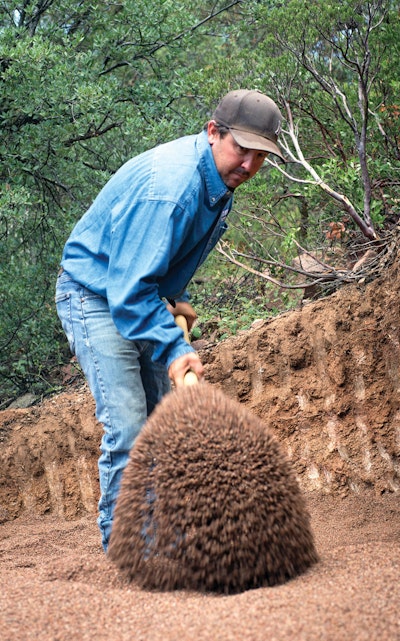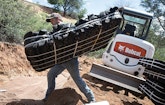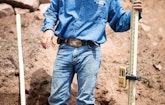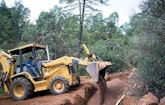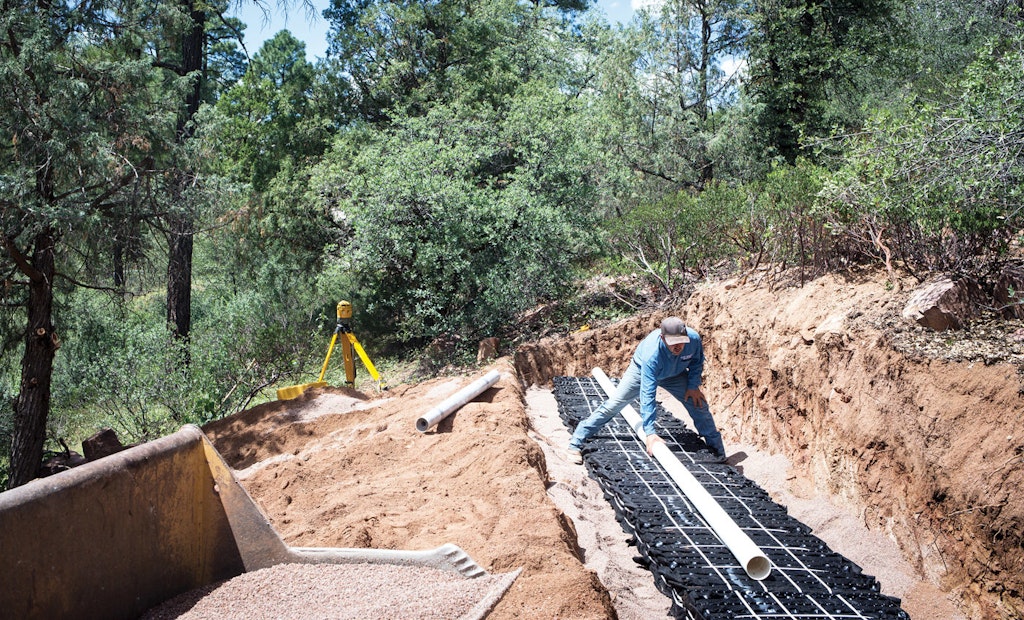
Willie Brown constructs a drainfield into a slope using Eljen GSF, or Geotextile Sand Filter, drainfield media covered by a geotextile fabric provided by Eljen. The laser level is from Spectra Precision/Trimble.
Installing septic systems in a remote and rugged region of central Arizona presents many challenges for Willie Brown, who works mostly by himself, with a summer assist from his younger brother, Daylen. There’s the challenging topography and rocky soils, long hauls with heavy...
